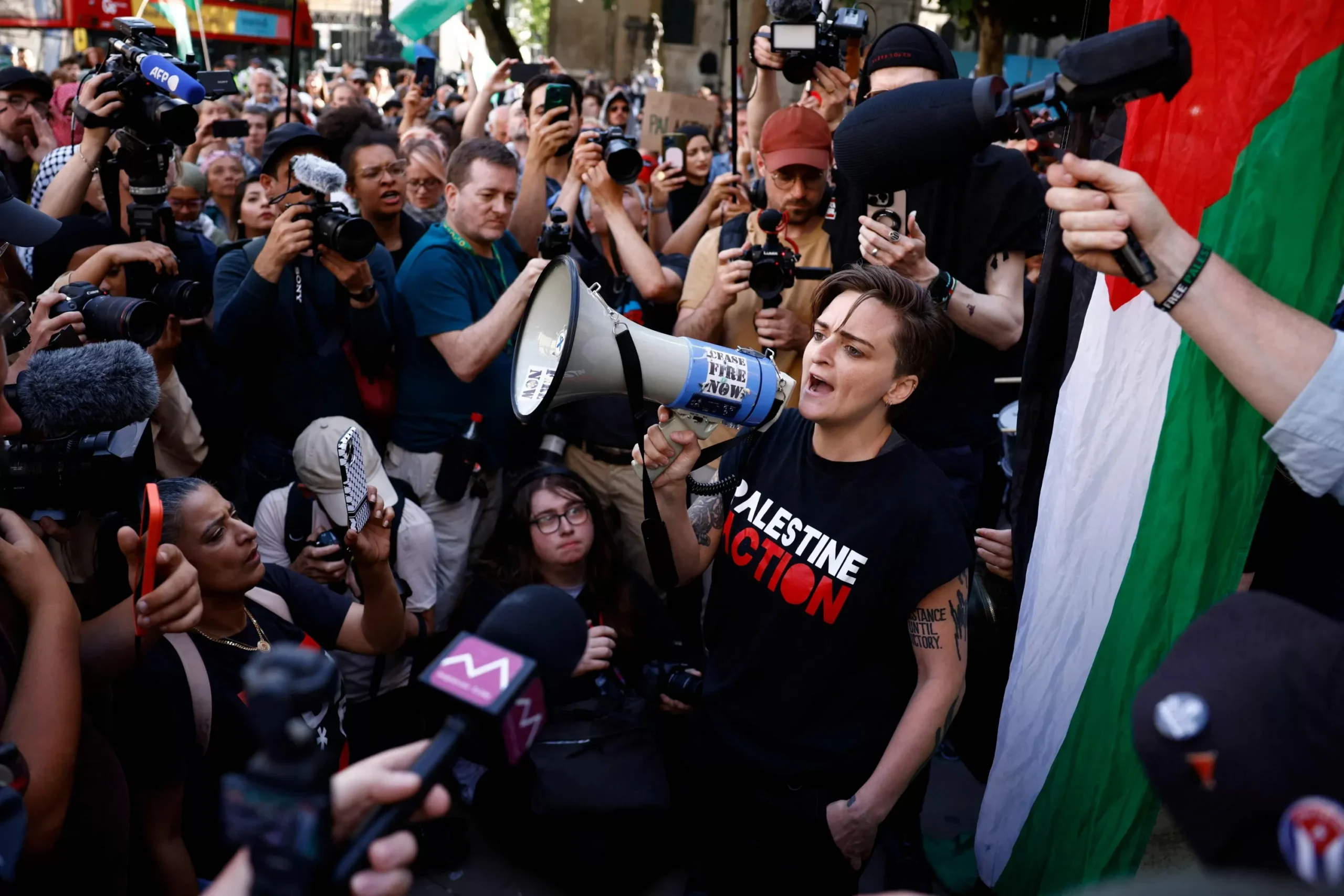In a move that has sparked widespread backlash and condemnation, the U.K. government has announced its decision to classify the non-violent protest group Palestine Action as a terrorist organization. This comes after a high court ruling on Friday rejected the group’s appeal to be removed from the government’s list of banned terrorist organizations. This decision not only sets a dangerous precedent for peaceful activism but also raises questions about the government’s commitment to human rights and freedom of speech.
Palestine Action, a grassroots organization, has been engaging in non-violent direct action to protest against companies and institutions that are complicit in the occupation of Palestine. Their methods include occupying and peacefully protesting outside businesses that are profiting from the illegal Israeli settlements in the occupied Palestinian territories. The group’s actions are in solidarity with the Palestinian people who have been subjected to decades of brutal occupation and human rights violations.
However, the U.K. government has chosen to label this group as a terrorist organization, citing concerns over their tactics and alleged links to extremist groups. This decision has been met with widespread criticism and has been seen as a direct attack on the group’s right to freedom of expression and peaceful protest. Many have pointed out the irony of the U.K. government, which prides itself on being a champion of democracy and human rights, taking such a drastic and unjustified action.
The decision to label Palestine Action as a terrorist organization not only undermines the group’s legitimate cause but also stigmatizes and criminalizes all those who support it. It sends a chilling message to anyone who dares to speak out against the injustices faced by the Palestinian people and suggests that peaceful activism and solidarity can be equated with terrorism. This is a dangerous narrative that must be challenged and denounced.
The ruling by the high court to reject Palestine Action’s appeal is also deeply concerning. This decision not only disregards the group’s right to a fair trial but also sets a dangerous precedent for the criminalization of non-violent activism. It is a worrying reflection of the growing trend of governments using anti-terrorism laws to silence dissent and suppress legitimate forms of protest.
Moreover, the decision to classify Palestine Action as a terrorist organization goes against the advice of leading human rights organizations and experts. Amnesty International has called the move “a brazen attempt to silence criticism of Israel’s occupation.” The organization also highlighted that Palestine Action’s actions are protected under the right to peaceful assembly and must not be criminalized. The U.N. Special Rapporteur on the rights to freedom of peaceful assembly and association, Clement Nyaletsossi Voule, has also expressed his concern over the decision, deeming it “an attack on the fundamental right to protest.”
It is evident that the U.K. government’s decision to label Palestine Action as a terrorist organization is not only unjustified but also deeply flawed. This move is a blatant attempt to silence and intimidate those who stand in solidarity with the oppressed Palestinian people. It also raises questions about the government’s commitment to upholding human rights and allowing for legitimate forms of protest.
Instead of criminalizing peaceful activists, the U.K. government should be holding to account the real perpetrators of violence and human rights violations in the conflict between Israel and Palestine. By labeling those who protest against injustice as terrorists, the government is hindering efforts to bring about a just and peaceful resolution to the conflict. It is time for the U.K. government to reassess its priorities and stand on the right side of history.
In conclusion, the decision to classify Palestine Action as a terrorist organization is a disheartening and dangerous move by the U.K. government. It not only poses a threat to the legitimacy of non-violent activism but also sends a chilling message to those who dare to speak out against injustice. The government must reverse this decision and recognize the invaluable role that peaceful protest plays in advocating for human rights and justice. Anything less would be a betrayal of the principles of democracy, freedom of speech, and human rights that the U.K. claims to uphold.





![Complete BritRail Pass Guide [Types, How to Use It, Pros + Cons]](https://inside-news.uk/wp-content/uploads/2025/06/00221EB4-BCA2-4DBB-6CD4-83DBC37D71FA-120x86.webp)












